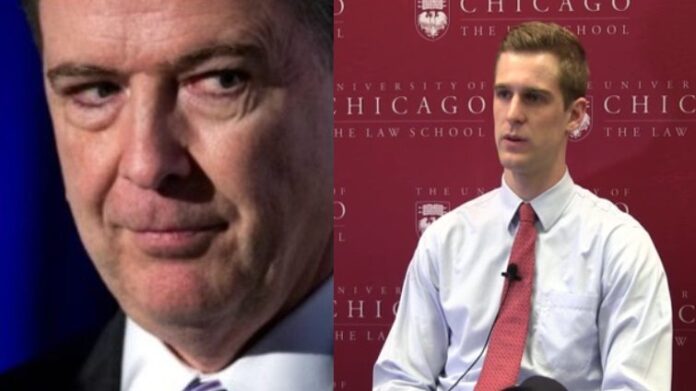
Case Intel
- James Comey’s son-in-law, Troy Edwards, is still serving as a federal prosecutor despite glaring conflicts.
- Edwards led high-stakes prosecutions, including Jan. 6 Oath Keepers and the Abbey Gate terrorist case.
- New questions emerge over whether his position is shielding Comey from possible criminal exposure.
USA Herald has been digging into the Comey family’s entanglements inside the Department of Justice, and the picture is as troubling as it is undeniable. Everyone knew that James Comey’s daughter once worked at DOJ before being dismissed. Few realized his son-in-law, Troy A. Edwards, Jr., remains entrenched as a federal prosecutor.
Edwards wasn’t just another face in the room. He stood front and center on one of the most politicized cases in recent history: the Jan. 6 Oath Keepers trial. During that proceeding, Edwards told the BBC the defendants had accepted an “invitation to sedition.” Defense counsel countered that there was no concrete plan for insurrection—only private security work.
That conflict wasn’t abstract. Edwards is the son-in-law of the man who arguably built his career on targeting Donald Trump: James Comey. Recusal should have been automatic. It never happened.
Court filings from the Eastern District of Virginia (Case references: U.S. v. Elmer Stewart Rhodes III et al., filed Jan. 2022; U.S. v. Mohammad Sharifullah, filed Mar. 2025) show Edwards listed as prosecuting counsel. DOJ press releases confirm his participation.
In March, the Department of Justice announced charges against Sharifullah, tied to the Abbey Gate bombing in Kabul that killed 13 U.S. service members. Edwards was again named as part of the team. The DOJ press release celebrated the capture, quoting Attorney General Pamela Bondi, FBI Director Kash Patel, and U.S. Attorney Erik Siebert. What DOJ did not address: credible reports that military leadership had ordered a “stand down” at Abbey Gate, a decision some believe directly contributed to the deaths.
Despite this shadow, Edwards continues handling cases that intersect national security, military failures, and politically charged narratives.


